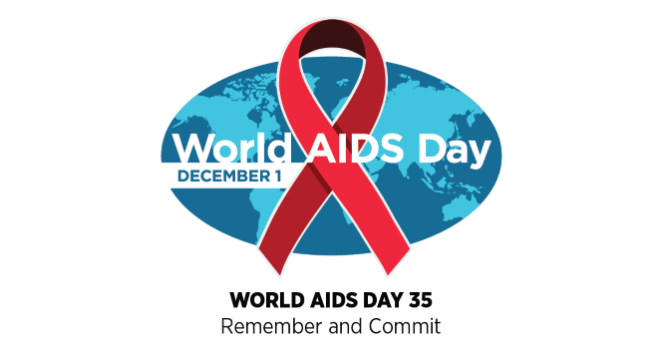By Lydia Ziegler (she/her), 16, Staff Writer
December 1, 2023
Every year on December 1, we recognize World AIDS Day to honor the lives lost to AIDS as well as to note the progress that has been made. For example, drugs are now available to help 1.) prevent the transmission of human immunodeficiency virus (HIV) and 2.) manage life with HIV, the virus that can develop into acquired immunodeficiency syndrome (AIDS).
2023 marks 35 years since the first World AIDS Day. The national theme this year is “World AIDS Day 35: Remember and commit”, inviting us to reflect on the past and commit to the future.
Much work remains to be done and we can all play a part. Community organizations, researchers, policy makers, and even teenagers like you and me can help by continuing to talk about HIV prevention and treatment. We must ensure that this public health issue remains a top priority.
Here are some updates and important information about where things stand today.
HIV/AIDS Today
More than 40 years have passed since the Centers for Disease Control and Prevention reported the first five cases of what became known as AIDS. By the end of 2022, approximately 39 million people worldwide were living with HIVaccording to the World Health Organization.
This shows the importance of a global commitment to stopping new HIV infections and ensuring that everyone with HIV, regardless of their ability to pay or where they live, has access to adequate treatment.
Testing and Treatment
About 86 percent of people with HIV worldwide have been tested and know their HIV status. Testing is an essential step in accessing the available medical treatments that help people with HIV stay healthy.
Although there is no cure for HIV, there is medicine called antiretroviral therapy (ART) that reduces the chances of people living with HIV developing complications. ART can also reduce the amount of virus in the blood (also called viral load) to the point where it is undetectable. Undetectable means that a person’s viral load is so low that the virus cannot be transmitted to someone else. This is known as undetectable = untransmissible (U = U).
Prevention
Pre-exposure prophylaxis, or PrEP, is a medicine that people at risk for HIV can take to prevent getting HIV from sex or using (injecting) drugs. PrEP is for people who are HIV negative and is highly effective at preventing HIV when taken as directed.
Post-exposure prophylaxis, or PEP, can be used if someone has been exposed to HIV. It is for emergency use and must be taken within 72 hours (three days) of exposure.
For a list of how to find resources like testing, PrEP, and PEP, check this out Link.
More people need access
It is clear that significant advances have already been made by scientists and researchers to help treat people living with HIV and reduce the spread of the virus. But even with all the progress, not all people have insurance coverage, can’t afford to pay for drugs, or have access to things like tests and care. Resources to help people afford medicines, clinic visits and tests must receive continued funding.
Unfortunately, many people around the world do not have access to resources.
You can lead
To make a world without HIV/AIDS a reality, continue this important conversation on World AIDS Day and throughout the year. The persistent stigma surrounding HIV/AIDS often creates barriers to open communication, whether between family members, patients and health care providers, or intimate partners.
The 35 Remember and commit to the campaign encourages each of us to make a difference. And you can check the global information hereto see what communities around the world are doing to help those in need.
Educate yourself about how HIV is transmitted and encourage discussion about safer sex in your friend groups and intimate relationships.
Honor those who have died of AIDS by wearing a red ribbon and supporting any local World AIDS Day events.
Share information about global and community events, videos or social media that will help educate and celebrate the important HIV/AIDS awareness movement.
Together, we can continue to make progress.
